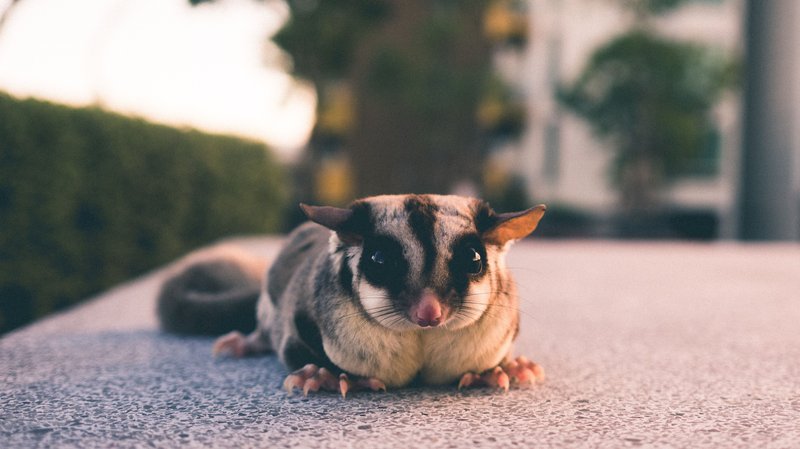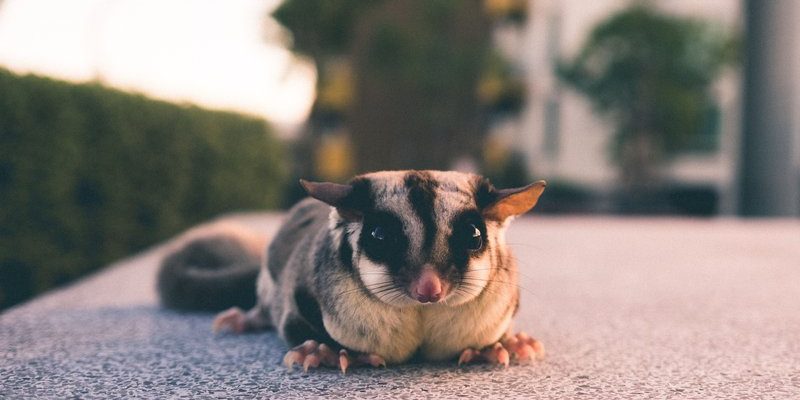
Many people dive into sugar glider ownership without fully grasping what it takes to keep them healthy. These critters may seem low-maintenance, but they can develop a range of health problems if not cared for properly. In this article, let’s explore some of the most common health concerns sugar gliders face and share practical tips to help you prevent them. We’ll break down everything in simple terms, so even if you’re brand new to sugar gliders, you’ll walk away feeling informed.
1. Obesity: A Growing Concern
Sugar gliders love to munch, and with a diet primarily consisting of fruits, insects, and even some nuts, it can be easy for them to overeat. Obesity is one of the leading health issues among sugar gliders. Just like how humans can struggle with weight, these cute creatures can too, which can lead to serious health problems like diabetes and heart disease.
Here’s the thing: it’s not just about how much they eat, but also what they eat. Many owners mistakenly feed their sugar gliders too many sugary fruits, thinking they’re giving them a treat. While a little sweetness is fine, it shouldn’t be the main course. Instead, focus on a balanced diet that includes:
- Leafy greens
- Protein sources like crickets or mealworms
- A small amount of fruits as an occasional treat
Monitoring their food intake and providing regular exercise in a safe environment can also help keep your sugar glider at a healthy weight. Adding climbing toys and tunnels can encourage them to move around more.
2. Nutritional Deficiencies
It’s crucial to provide a well-rounded diet for your sugar glider, as nutritional deficiencies can lead to serious health issues. Calcium deficiency is particularly common and dangerous. Without enough calcium, sugar gliders can develop metabolic bone disease, which can cause painful fractures and deformities.
To avoid this, you can:
- Offer a variety of foods rich in calcium, such as leafy greens.
- Include fortified foods specifically designed for sugar gliders.
- Consult with a vet for advice on supplements if needed.
You might be wondering how you can tell if your sugar glider has nutritional issues. Look for signs like lethargy, changes in appetite, or difficulty moving. If you notice any unusual behaviors, it’s always a good idea to get your furry friend checked out by a veterinarian.
3. Dental Issues
Just like with people, good dental hygiene is important for sugar gliders. They can experience dental problems like gum disease and tooth decay, especially if their diet is lacking in essential nutrients. Dental issues can be painful and lead to broader health complications if not addressed.
Here are some steps you can take:
- Provide crunchy foods to help keep their teeth clean.
- Regularly check their mouths for any signs of redness, swelling, or bad breath.
- Take your sugar glider for periodic dental check-ups with your vet.
Think of it as similar to our own experiences; a small toothache can lead to much bigger issues if ignored.
4. Respiratory Infections
Sugar gliders are susceptible to respiratory infections, which can flare up quickly, especially in stressful environments. Symptoms might include coughing, sneezing, or difficulty breathing. Stress can come from changes in their environment, loud noises, or even being housed with incompatible gliders.
Preventing these issues requires a few careful steps:
- Create a stable living environment with minimal stress.
- Keep their home clean to avoid bacteria buildup.
- Ensure proper humidity and temperature in their habitat.
If you notice any signs of respiratory distress, it’s essential to consult a vet quickly. Early treatment can make a significant difference in recovery.
5. Parasites: The Unwanted Guests
Nobody wants to deal with unwanted guests, especially when they come in the form of parasites! Sugar gliders can host various parasites, like mites or worms, which can lead to serious health concerns. Signs of parasitic infections can include scratching, hair loss, or changes in appetite.
To keep these critters at bay, you should:
- Regularly check for signs of itching or unusual behavior.
- Keep their living area clean and sanitized.
- Consult your vet about preventive treatments.
Prevention is key here—keeping their space clean can significantly lower the risk of such infestations.
6. Stress and Anxiety
Believe it or not, sugar gliders can experience stress and anxiety, which can lead to both physical and mental health issues. Just like how humans can feel overwhelmed, a sugar glider can become anxious due to changes in their environment or lack of socialization. Signs of stress might include excessive grooming, hiding, or changes in eating habits.
To help soothe your sugar glider:
- Provide plenty of enrichment, such as toys and climbing structures.
- Maintain a consistent daily routine.
- Spend quality time bonding with your sugar glider, offering gentle handling and play.
Creating a safe, engaging environment can make a world of difference in keeping them happy and healthy.
7. Regular Veterinary Check-Ups
Lastly, don’t underestimate the importance of regular vet visits. Even if your sugar glider seems healthy, a vet can catch potential issues before they escalate. They can provide vaccinations, dental care, and advice tailored specifically to your pet’s needs.
Here’s what you can expect during a vet visit:
- A physical exam to check for any signs of illness.
- Advice on diet and habitat setup.
- Details on vaccination schedules and preventive care.
Think of it as a wellness check-up: just like we benefit from seeing a doctor, your sugar glider will thrive with regular check-ups too!
In summary, keeping your sugar glider in good health involves understanding their potential challenges and proactively addressing them. Obesity, nutritional deficiencies, dental issues, respiratory infections, parasites, stress, and regular veterinary care all play a vital role in their overall well-being. By staying informed and attentive, you can ensure that your sugar glider lives a long, happy life. Remember, they rely on you for their well-being, and with a little love and care, you can nurture a delightful bond with your furry friend.

